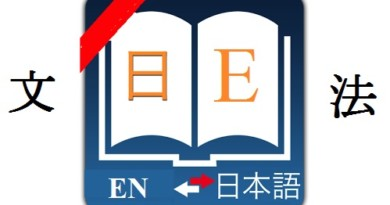Compare わすれる、そこなう and のがす
Xin chào các bạn! Suppose there is a situation like this: You forget to eat breakfast, which expression will you choose to express that idea,(食べ)わすれる or そこなう or のがす? To help you understand the usage of わすれる, そこなう and のがす better, in this post, Learn Japanese Daily will introduce to you the lesson: Compare わすれる、そこなう and のがす.

Similarities
They all mean “did something by mistake”.
They are used with Vます(remove ます)
Differences
わすれる wasureru
わすれる has two meanings :
1) “to forget to do something”
Example :
田中さんに本を返し忘れた。
Tanaka san ni hon wo kaeshi wasureta.
I forgot to return the book to Mr. Tanaka
薬を飲み忘れた。
Kusuri wo nomi wasureta.
I forgot to take medicine.
2) “in the middle of doing something and forget it”.
Example :
電車の中に傘を置き忘れた。
Densha no naka ni kasa wo oki wasureta.
I forgot my umbrella on the train.
昨日の晩、蛇口をひね忘れて寝ました。起きると水が床にあふれた。
Kinou no ban, jaguchi wo hine wasurete nemashita. Okiru to mizu ga yuka ni afureta.
Last night, I forgot to twist the faucet and went to sleep. When I got up, water overflowed on the floor.
そこなう sokonau
そこなう has two meaning :
1) “to do something wrong, to do something by mistake”
Example :
見たい映画のチケットを買いそこなった。
Mitai eiga no chiketto wo kai sokonatta.
I failed to buy ticket of the movie I want to see.
塩と砂糖を取りそこなった。
Shio to satou wo tori sokonatta.
I couldn’t take the salt and sugar.
2) “to miss one’s opportunity to do something”.
Example :
アイドルのライブを聞きそこなった。
Aidoru no raibu wo kaki sokonatta.
I missed the idol’s live performance.
恩人に感謝を述べそこなった。
Onjin ni kansha wo nobe sokonatta.
I missed the opportunity to say thank you to my benefactor.
Note :「見損なう」,「見誤る」mean :”to misjudge”.
のがす nogasu
のがす has two meanings :
1) “to inadvertently miss the opportunity to do something”
Example :
子供が大好きなアニメを見逃して残念そうにテレビを見た。
Kodomo ga daisuki na anime wo minokoshite zannen souni terebi wo mita.
My child missed his favorite cartoon so he looked at the television with regret.
先生が注意した項目をメモしそこなった。
Sensei ga chuui shita koumoku wo memo shi sokonatta.
I failed to take note the items that the teacher mentioned.
2) “While not paying attention, the incident happened”
Example :
あの人のパフォーマンスを見逃がした。
Ano hito no pafo-mansu wo minogashita.
I missed the performance of that person.
父が言った何か大事なことを聞き逃した。
Chichi ga itta nanika daiji na koto wo kiki nogashita.
I missed something important that my father said.
Note : のがす is usually only used with「みる」、「きく」、「とる」. It is rarely used with other words.
Exercise for consolidating knowledge :
Choose the correct answer
参加者が多いので、数を数え(忘れた・損なった・逃した)。
タイ料理の原料全部買ったと思いますが、調味料を買い(忘れて・そこなって・のがして)しまいました。
あの人はさっき私について何か言ったはずなのに、聞き(忘れ・そこない・逃し)ました。
警察は速度違反の車を止め(わすれた・そこなった。のがした)。
アイロンを服から離し(忘れて・そこなって・のがして)しまった。
あんなに出世するいい機会なのに、とり(わすれ・そこない・逃がし)ました。
In this post, Learn Japanese Daily has helped you Compare わすれる、そこなう and のがす.
See other similar lessons at category: japanese grammar dictionary
